George Bernard Shaw: His Plays (1905) is H. L. Mencken's interpretation of G. Bernard Shaw's plays, in which Mencken overwhelmingly embraced the man who was, at that time, his favourite playwright.
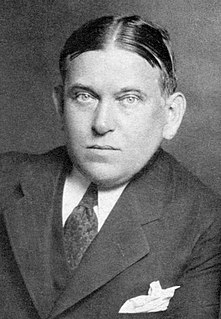
Henry Louis Mencken was an American journalist, essayist, satirist, cultural critic and scholar of American English. He commented widely on the social scene, literature, music, prominent politicians and contemporary movements. His satirical reporting on the Scopes trial, which he dubbed the "Monkey Trial", also gained him attention.

George Bernard Shaw, known at his insistence simply as Bernard Shaw, was an Irish playwright, critic, polemicist and political activist. His influence on Western theatre, culture and politics extended from the 1880s to his death and beyond. He wrote more than sixty plays, including major works such as Man and Superman (1902), Pygmalion (1912) and Saint Joan (1923). With a range incorporating both contemporary satire and historical allegory, Shaw became the leading dramatist of his generation, and in 1925 was awarded the Nobel Prize in Literature.
According to Mencken: "Through Shaw, I found my vocation at last." It is no surprise that Mencken was enthusiastic in his praise of Shaw when he wrote His Plays, but as time passed, this love would wane, and he would eventually criticize Shaw in a later work Prejudices . Mencken began work on the book in 1904, with the goal of publishing the book under John W. Luce. The body of the book is made up of summaries of Shaw's plays, with minor analysis. The entire book was slightly over 100 pages.
Perhaps the most interesting section of the book is the introduction, where Mencken injects his own personality and beliefs into the work, praising Charles Darwin, Thomas Huxley, and Herbert Spencer – all of whom he insisted influenced Shaw.

Charles Robert Darwin, was an English naturalist, geologist and biologist, best known for his contributions to the science of evolution. His proposition that all species of life have descended over time from common ancestors is now widely accepted, and considered a foundational concept in science. In a joint publication with Alfred Russel Wallace, he introduced his scientific theory that this branching pattern of evolution resulted from a process that he called natural selection, in which the struggle for existence has a similar effect to the artificial selection involved in selective breeding.
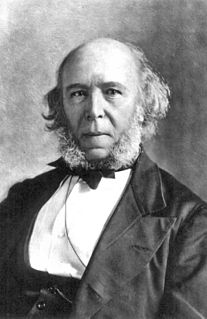
Herbert Spencer was an English philosopher, biologist, anthropologist, sociologist, and prominent classical liberal political theorist of the Victorian era.
Response to the work was mixed, and Mencken made no money at all. In fact, Mencken hoped to meet with Shaw, but his letters went unanswered. Mencken assumed that this was because Shaw disliked the work, but in fact Shaw was moderately impressed – a fact Mencken only discovered years later, while writing Prejudices.

Mrs Patrick Campbell, born Beatrice Rose Stella Tanner and known informally as "Mrs Pat", was an English stage actress.
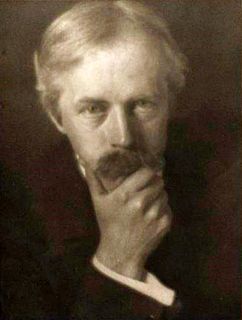
Arthur William Symons, was a British poet, critic and magazine editor.
A happy ending is an ending of the plot of a work of fiction in which almost everything turns out for the best for the protagonists, their sidekicks, and almost everyone except the villains.

Corinne Anita Loos was an American screenwriter, playwright and author, primarily known for her successful novel, Gentlemen Prefer Blondes. She became arguably the first-ever staff scriptwriter in 1912 when D.W. Griffith put her on the payroll at Triangle Film Corporation. She went on to write many of the Douglas Fairbanks films, as well as the stage adaptation of Colette’s Gigi.

Thomas William Robertson, usually known professionally as T. W. Robertson, was an English dramatist and innovative stage director best known for a series of realistic or naturalistic plays produced in London in the 1860s that broke new ground and inspired playwrights such as W.S. Gilbert and George Bernard Shaw.

Bardolatry is the worship, particularly when considered excessive, of William Shakespeare. Shakespeare has been known as "the Bard" since the eighteenth century. One who idolizes Shakespeare is known as a Bardolator. The term Bardolatry, derived from Shakespeare's sobriquet "the Bard of Avon" and the Greek word latria "worship", was coined by George Bernard Shaw in the preface to his collection Three Plays for Puritans published in 1901. Shaw professed to dislike Shakespeare as a thinker and philosopher because the latter did not engage with social problems, as did Shaw in his own plays.

John Bull's Other Island is a comedy about Ireland, written by George Bernard Shaw in 1904. Shaw himself was born in Dublin, yet this is one of only two plays of his where he thematically returned to his homeland, the other being O'Flaherty V.C. The play was highly successful in its day, but is rarely revived, probably because so much of the dialogue is specific to the politics of the day.
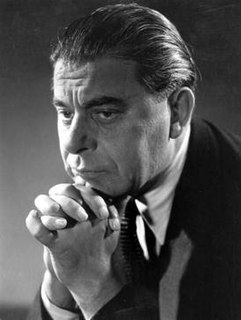
Gabriel Pascal was a Hungarian-born film producer and director whose best-known films were made in the United Kingdom.
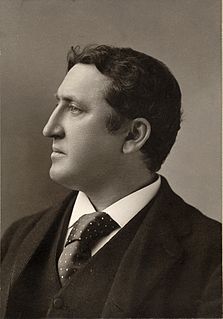
James Gibbons Huneker was an American art, book, music, and theater critic. A colorful individual and an ambitious writer, he was "an American with a great mission," in the words of his friend, the critic Benjamin De Casseres, and that mission was to educate Americans about the best cultural achievements, native and European, of his time. From 1892 to 1899, he was the husband of the sculptor Clio Hinton.

Arthur Bingham Walkley, usually known as A B Walkley was an English public servant and drama critic. As a civil servant he worked for the General Post Office from 1877 to 1919, in increasingly senior posts; he did not seek the highest official positions, preferring to leave himself time and energy for his parallel career as a drama critic. As a journalist he worked with Bernard Shaw on The Star at the beginning of his newspaper career; he is probably best known for his twenty-six years as theatre critic of The Times. He retired from the Post Office in 1919, and for the last six years of his life concentrated wholly on writing.
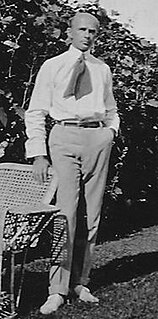
Joseph Percival Pollard was an American literary critic, novelist and short story writer.
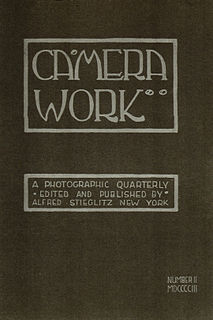
Camera Work was a quarterly photographic journal published by Alfred Stieglitz from 1903 to 1917. It is known for its many high-quality photogravures by some of the most important photographers in the world and its editorial purpose to establish photography as a fine art. It has been called "consummately intellectual", "by far the most beautiful of all photographic magazines", and "a portrait of an age [in which] the artistic sensibility of the nineteenth century was transformed into the artistic awareness of the present day."
The Shaw Festival is a major Canadian theatre festival in Niagara-on-the-Lake, Ontario, the second largest repertory theatre company in North America. Founded in 1962, its original mandate was to stimulate interest in George Bernard Shaw and his period, and to advance the development of theatre arts in Canada.

St. John Emile Clavering Hankin was an English Edwardian essayist and playwright. Along with George Bernard Shaw, John Galsworthy, and Harley Granville-Barker, he was a major exponent of Edwardian "New Drama". Despite success as a playwright he died by his own hand, and his work was largely neglected until the 1990s.

Birmingham Repertory Theatre, commonly called Birmingham Rep or just The Rep, is a producing theatre based on Centenary Square in Birmingham, England. It is the longest-established of Britain's building-based theatre companies and one of its most consistently innovative.

Passion, Poison, and Petrifaction is a short play by Bernard Shaw, subtitled The Fatal Gazogene: a Brief Tragedy for Barns and Booths. It is a comic mock-melodrama, written to raise funds for charity. It has been revived occasionally, in tandem with other short works by Shaw or by other playwrights.

On the Rocks: A political Comedy (1932) is a play by George Bernard Shaw which deals with the social crisis of the Great Depression. The entire play is set in the Cabinet Room of 10 Downing Street. It is noted for its evidence of Shaw's political evolution towards apparent support for dictatorship.
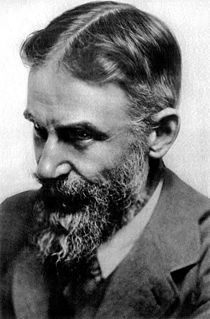
The Gadfly or The Son of the Cardinal (1897-8) is a dramatic adaptation by George Bernard Shaw of Anglo-Irish writer Ethel Lilian Voynich 's novel The Gadfly. It was written as a favour to the author, who was a friend of Shaw's.



















